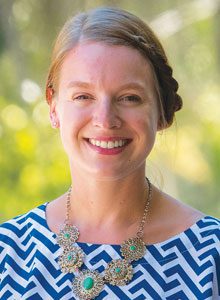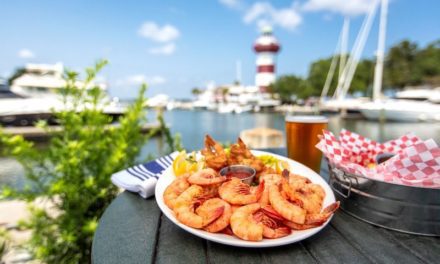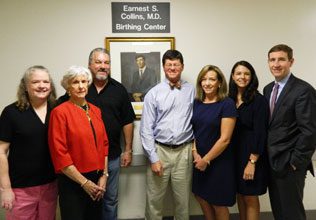 By Rikki Parker
By Rikki Parker
In 1974, a member of the Council of the British Plastics Federation said, “Plastics litter is a very small proportion of all litter and causes no harm to the environment except as an eyesore.” Forty-three years later and hindsight being 20/20, the plastics industry could not have been more wrong as the world faces a plastic pollution problem of titanic scope and scale.
Since 1970, plastic use and plastic pollution increased exponentially. Take the North Atlantic Garbage Patch, located off the Atlantic coast: this massive gathering of tiny pieces of garbage extends from Virginia to Cuba and is 80 percent plastic waste – no “small proportion.” And while an island of trash estimated to be hundreds of miles across is certainly “an eyesore” for any sailor unfortunate enough to encounter it, this island of trash causes infinitely more harm than a neighbor’s tasteless, pink yard flamingo. The North Atlantic Garbage Patch is so large that scientists concede there’s not much we can do to clean it up. Our best strategy is to prevent and curb its growth as best we can.
The ubiquitous plastic bag is a significant contributor to the North Atlantic Garbage Patch. In the United States alone, we use 100 billion bags each year. These bags require 12 million barrels of oil to produce and cost businesses $4 billion. On average, just one in every 100 bags is recycled. That means, the remaining 99 wind up in landfills or in our waterways.
When bags reach local salt marshes, tidal creeks or open beach, they cause serious harm to Lowcountry wildlife. Sea turtles often mistake plastic bags for jellyfish, one of their favorite snacks. And after taking an initial bite, there’s no turning back. The sea turtle is physiologically unable to spit the bag out. Once ingested, bags can block the sea turtle’s intestine causing turtles to starve to death.
Research indicates plastic bags can harm the human food chain, too. Plastic pollution never really disappears. Though plastics break down in sunlight and seawater, they don’t completely disintegrate. Rather, plastics break into tiny pieces, known as microplastics. Fish, mussels, shrimp and oysters ingest microplastics. These tiny particles absorb environmental toxins like flame-retardants, DDT and PCBs. Once ingested, the plastic particles leach these chemicals into whatever animal eats them next. When we consume fish and shellfish, we too are ingesting plastics that slowly release toxic chemicals into our bodies. We do not know the full effect of microplastics on the human body, but researchers are beginning to rigorously investigate the issue. We do know, however, that recent studies show that microplastic ingestion can cut oyster reproductive rates nearly in half. Diminished shellfish populations and a tainted, plastics-ridden shellfish supply could wreak havoc on entire industries in Beaufort County, like commercial fishing and tourism.
For individuals and groups responsible for picking up litter – police departments, citizen volunteers and beach patrols – plastic bags create extra work. On a single day last year, 722 Beaufort County residents volunteered three hours of time to clean up local beaches - or 2,166 hours. Based on the state’s average hourly wage, that’s $32,490 of labor in just one day. If we had to pick up plastic bags and other trash every day for an entire year, we’d have about $12 million worth of time invested.
Finally, plastic bags frustrate the waste management process. Bags frequently clog recycling equipment during sorting, shutting down entire facilities for employees to untangle plastic waste. For local companies and town officials, plastic bags are a giant waste of valuable time and resources.
But, there’s good news! We can do our part to help solve this problem. Isle of Palms and Folly Beach implemented plastic bag bans, and last week dozens of residents attended a Hilton Head Planning Commission meeting to explore and discuss ways to address and reduce plastic pollution here. Not a single citizen spoke in opposition to a plastic bag ban. At that meeting, the commission pledged to convene a subcommittee to further consider a plastic bag ban or fee. We applaud the Planning Commission and the Town of Hilton Head Island for taking that initiative. The Conservation League and other groups have collected hundreds of signatures in a petition asking local governments to support a plastic bag ban.
It’s clear that people are ready to make a difference. Reuse and recycling of plastic waste are both important. But, until we reduce and refuse plastics, we will never rid our waterways, our saltmarshes and our scenic coastal roads of this harmful pollution.
Community leaders should commit to our environment by following examples set by Isle of Palms, Folly Beach and hundreds of other coastal communities across the country. One solution is local and simple: Ban the bag.
cRikki Parker is a project manager in the Coastal Conservation League’s South Coast office. Born in Arthur, Illinois, she graduated cum laude from the Univ. of Evansville with a B.S. in cognitive science in 2010. Rikki earned her J.D. from Louisiana State in 2013 and served as president of the Trial Advocacy Board. After graduation, Rikki practiced in the areas of employment discrimination and environmental law. In 2015, she served as policy director to Scott Angelle’s campaign for Governor of Louisiana







